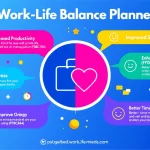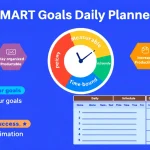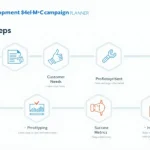Is this tool helpful?
How to Use the Career Path Outline Tool Effectively
Our Career Path Outline Tool is designed to help professionals in performance management visualize their potential career trajectories. Here’s a step-by-step guide on how to use this tool effectively:
- Enter the specific role: In the provided input field, type the performance management role you’re interested in exploring. Be as specific as possible to get the most accurate and relevant results.
- Click “Outline Career Paths”: Once you’ve entered the role, simply click the blue button to generate your personalized career path outline.
- Review the results: The tool will produce a comprehensive overview of potential career paths, including job titles, responsibilities, required skills, and industry trends.
- Copy the results: If you’d like to save or share the generated career path outline, use the “Copy to Clipboard” button at the bottom of the results section.
For example, you might enter “Performance Improvement Specialist” or “Employee Engagement Manager” as your specific role. The tool will then generate a tailored career path outline for these positions within the performance management field.
Unlocking Your Performance Management Career Potential
In today’s rapidly evolving business landscape, understanding the potential career paths within performance management is crucial for professional growth and success. Our Career Path Outline Tool is a powerful resource designed to help performance management professionals, HR specialists, and aspiring leaders navigate their career trajectories with confidence and clarity.
What is the Career Path Outline Tool?
The Career Path Outline Tool is an innovative, AI-powered calculator that provides a comprehensive overview of potential career paths for specific roles within the performance management field. By leveraging extensive industry data and expert insights, this tool offers valuable information on job titles, responsibilities, required skills, and qualifications at various career stages, from entry-level positions to senior roles.
Purpose and Benefits
The primary purpose of this tool is to empower professionals in the performance management sector with knowledge and foresight about their career potential. By using this tool, you can:
- Gain a clear understanding of possible career trajectories
- Identify skills and qualifications needed for advancement
- Explore various job titles and roles within the performance management field
- Stay informed about industry trends and future prospects
- Make informed decisions about your professional development
Benefits of Using the Career Path Outline Tool
1. Career Planning and Goal Setting
One of the most significant advantages of using our Career Path Outline Tool is its ability to facilitate effective career planning and goal setting. By providing a clear roadmap of potential career paths, the tool enables you to:
- Set realistic short-term and long-term career goals
- Identify specific milestones to achieve along your career journey
- Align your professional aspirations with industry trends and opportunities
2. Skill Gap Analysis
Understanding the skills and qualifications required for advancement is crucial for professional growth. Our tool helps you:
- Identify key skills needed for progression in your chosen career path
- Recognize gaps in your current skill set
- Prioritize areas for professional development and training
3. Industry Insights and Trends
Staying informed about industry trends is essential in the dynamic field of performance management. The Career Path Outline Tool provides:
- Up-to-date information on emerging roles and responsibilities
- Insights into the evolving landscape of performance management
- Predictions about future career opportunities and growth areas
4. Enhanced Decision Making
With comprehensive information at your fingertips, you can make more informed decisions about your career. This tool empowers you to:
- Evaluate different career paths within performance management
- Assess the potential impact of various career moves
- Make strategic choices about job transitions and promotions
5. Motivation and Inspiration
Visualizing your potential career trajectory can be incredibly motivating. Our Career Path Outline Tool helps:
- Inspire you to pursue ambitious career goals
- Provide a sense of direction and purpose in your professional life
- Encourage continuous learning and self-improvement
Addressing User Needs and Solving Specific Problems
The Career Path Outline Tool is designed to address several common challenges faced by professionals in the performance management field:
1. Lack of Career Clarity
Many professionals struggle with uncertainty about their career progression. Our tool solves this problem by providing a clear, structured overview of potential career paths. For instance, if you input “Performance Analytics Specialist” into the tool, you might receive an outline that includes:
- Entry-level: Junior Performance Analyst
- Mid-level: Senior Performance Analytics Specialist
- Senior-level: Head of Performance Analytics
- Executive-level: Chief Performance Officer
This clarity helps users visualize their potential career trajectory and set realistic goals.
2. Skill Development Uncertainty
Identifying which skills to develop can be challenging. The Career Path Outline Tool addresses this by highlighting key skills and qualifications required for each career stage. For example, for a “Talent Development Coordinator” role, the tool might suggest:
- Entry-level skills: Basic understanding of learning management systems, good communication skills
- Mid-level skills: Advanced knowledge of instructional design, project management expertise
- Senior-level skills: Strategic workforce planning, leadership development program design
3. Industry Trend Awareness
Staying informed about industry trends can be time-consuming. Our tool solves this by providing concise, relevant information about current and future trends in performance management. For instance, it might highlight:
- The growing importance of data-driven performance management
- The shift towards continuous feedback models
- The integration of AI and machine learning in performance analytics
4. Career Transition Guidance
For professionals considering a career transition within performance management, our tool offers valuable guidance. It outlines potential lateral moves and the skills required for successful transitions. For example, a “Performance Review Specialist” might see potential transitions to roles like:
- Talent Development Specialist
- Employee Engagement Consultant
- Compensation and Benefits Analyst
Practical Applications and Use Cases
The Career Path Outline Tool has numerous practical applications for professionals at various stages of their careers. Here are some illustrative use cases:
1. Recent Graduates
Sarah, a recent HR graduate, is interested in specializing in performance management but isn’t sure about the career possibilities. She uses the tool to explore various entry-level roles in performance management, such as “Performance Management Associate” or “Junior Performance Analyst.” The tool provides her with information about:
- Typical responsibilities for these roles
- Essential skills and qualifications needed
- Potential career progression over the next 5-10 years
This information helps Sarah make an informed decision about which specific area of performance management to focus on as she starts her career.
2. Mid-Career Professionals
Mark, a Performance Review Specialist with five years of experience, feels ready for a career move but is unsure about his options. He uses the Career Path Outline Tool to explore potential next steps. The tool provides him with information about roles like:
- Senior Performance Management Consultant
- Performance Improvement Manager
- Talent Development Specialist
For each role, Mark can see the required skills, typical responsibilities, and future career prospects. This helps him identify which role aligns best with his interests and current skill set, as well as what additional skills he might need to develop.
3. Career Changers
Lisa, a marketing professional, is considering a career change into performance management. She uses the tool to understand the various entry points into the field. By inputting roles like “Performance Management Specialist” or “Employee Engagement Coordinator,” Lisa gains insights into:
- The core skills required for these roles
- How her existing skills might transfer to performance management
- Additional qualifications or certifications she might need
- Potential career trajectories in performance management
This information helps Lisa plan her transition and identify any skill gaps she needs to address.
4. HR Leaders
John, an HR Director, uses the Career Path Outline Tool to support his team’s professional development. He encourages team members to use the tool to:
- Explore potential career paths within the organization
- Identify skills they need to develop for future roles
- Set realistic career goals and development plans
John also uses the insights from the tool to inform the company’s talent development and succession planning strategies.
5. Performance Management Consultants
Emily, a performance management consultant, uses the tool to stay informed about industry trends and emerging roles. She inputs various performance management roles to:
- Keep her knowledge up-to-date about different career paths in the field
- Identify emerging roles and skill requirements
- Provide more informed career advice to her clients
This helps Emily maintain her expertise and provide valuable insights to the organizations she consults for.
Frequently Asked Questions (FAQ)
1. How often is the Career Path Outline Tool updated?
The Career Path Outline Tool is regularly updated to reflect the latest trends and developments in the performance management field. Our team of experts continuously monitors industry changes and incorporates new information to ensure the tool provides the most current and relevant career path insights.
2. Can I use this tool if I’m not currently working in performance management?
Absolutely! This tool is valuable for anyone interested in exploring career paths in performance management, including students, career changers, and professionals in related fields. It provides a comprehensive overview of the industry, making it an excellent resource for those considering a move into performance management.
3. How specific should I be when entering a role?
We recommend being as specific as possible when entering a role. For example, instead of just “Manager,” try “Performance Management Manager” or “Employee Engagement Manager.” The more specific you are, the more tailored and relevant the career path outline will be.
4. Can this tool predict future job markets?
While the Career Path Outline Tool incorporates current industry trends and projections, it’s important to note that the job market can be influenced by many factors. The tool provides informed insights based on current data and expert analysis, but it should be used as a guide rather than a definitive prediction of future job markets.
5. How can I use this tool alongside other career development resources?
The Career Path Outline Tool is an excellent complement to other career development resources. You can use it in conjunction with:
- Professional networking platforms to connect with individuals in roles you’re interested in
- Industry reports and publications to gain deeper insights into specific areas of performance management
- Career counseling services to discuss the insights gained from the tool and how they align with your personal goals and strengths
6. Is the information provided by the tool applicable globally?
The Career Path Outline Tool draws on a wide range of global data and trends in performance management. However, it’s important to note that specific job titles, responsibilities, and career trajectories can vary between countries and regions. We recommend using the tool as a general guide and supplementing it with region-specific research if you’re looking at international career opportunities.
7. How can organizations use this tool for talent development?
Organizations can leverage the Career Path Outline Tool in several ways:
- To create clear career progression frameworks for performance management roles
- To identify skills gaps in their current workforce and inform training programs
- To support employees in setting realistic career goals and development plans
- To inform succession planning strategies for key performance management roles
8. Can I save or share my career path outline?
Yes, you can easily save or share your career path outline. After generating your results, simply use the “Copy to Clipboard” button at the bottom of the results section. You can then paste this information into a document, email, or any other platform for future reference or sharing with others.
9. How does the tool account for emerging roles in performance management?
Our team of experts continuously monitors industry trends and emerging roles in performance management. As new roles emerge and gain traction in the industry, they are incorporated into the tool’s database. This ensures that the Career Path Outline Tool reflects not just traditional career paths, but also new and evolving roles in the field of performance management.
10. Can I use this tool to compare different career paths within performance management?
Absolutely! We encourage users to input different roles and compare the resulting career path outlines. This can be incredibly helpful for professionals considering different specializations within performance management. By comparing the skill requirements, responsibilities, and career trajectories of different roles, you can make more informed decisions about your career direction.
Important Disclaimer
The calculations, results, and content provided by our tools are not guaranteed to be accurate, complete, or reliable. Users are responsible for verifying and interpreting the results. Our content and tools may contain errors, biases, or inconsistencies. We reserve the right to save inputs and outputs from our tools for the purposes of error debugging, bias identification, and performance improvement. External companies providing AI models used in our tools may also save and process data in accordance with their own policies. By using our tools, you consent to this data collection and processing. We reserve the right to limit the usage of our tools based on current usability factors. By using our tools, you acknowledge that you have read, understood, and agreed to this disclaimer. You accept the inherent risks and limitations associated with the use of our tools and services.







